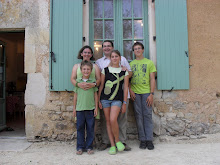BILINGUAL SIBLINGS
Language Use in Families
Suzanne Barron-Hauwaert
Taking a different perspective to traditional case studies on one bilingual child, this book discusses the whole family and the realities of life with two or more children and languages. What do we know about the language patterns of children in a growing and evolving bilingual family? Which languages do the siblings prefer to speak to each other? Do the factors of birth order, personality or family size affect language use? This book unveils the reality behind life with bilingual siblings.
Contents
Introduction
Chapter 1 – What do we know about Bilingual Families?
Chapter 2 – The Growing and Evolving Family
Chapter 3 – The Sibling Relationship
Chapter 4 – Age Difference, Family Size & Language Orders
Chapter 5 – Gender & Language
Chapter 6 – Birth Order: A Child’s Position in the Family
Chapter 7 – Individual Differences: Same Languages, Different Language Histories
Chapter 8 – Bilingualism and Twins, Adoption, Single parents & Step-families
Chapter 9 – Five Themes on Family Language Use
Paperback ISBN No: 9781847693266 C. £18.95 / US$29.95 / CAN$29.95 / €24.95





